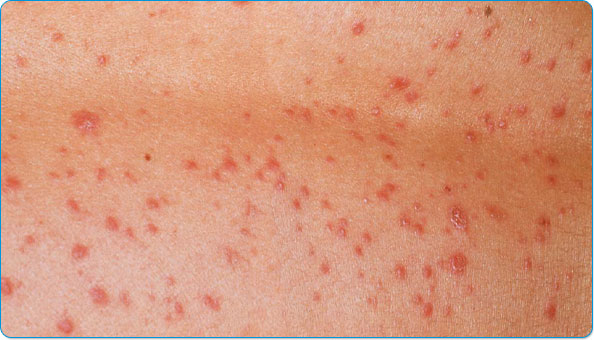A lot goes through your mind when you hear the word “cancer”. What stage is it? Do I need surgery? How does that work? Dr. Allgeier specialized skills in diagnosing and treating skin cancer provides you with unmatched service and treatment beyond compare to help put you at ease.
9 Psoriasis Myths You Probably Think Are True
Psoriasis affects approximately 2.6 percent of the population in the United States, which is about 7.5 million people. It’s characterized by red, inflamed patches of skin, but it’s not merely a skin disorder. For the sake of those living with the condition, let’s clear up some misconceptions.
Myth #1: Psoriasis is contagious
Psoriasis isn’t contagious and isn’t linked to hygiene or cleanliness. You can’t catch it from someone who already has the disease, even if you touch their skin directly, hug them, kiss them, or share food with them.
Myth #2: Psoriasis is just a skin condition
Psoriasis is actually an autoimmune disease. Clinicians believe that the condition results from a malfunctioning immune system that causes the body to begin producing skin cells much more quickly than normal. Because the skin cells don’t have adequate time to shed, they build up into the patches that are a telltale symptom of psoriasis.
Myth #3: Psoriasis is curable
Psoriasis is actually a lifelong condition. However, people who deal with psoriasis experience periods where their flare-ups are minimal or nonexistent, and other periods where their psoriasis is particularly bad.
Myth #4: Psoriasis is untreatable
It may not be curable, but psoriasis can be treated. Treatment methods have three goals: to stop the overactive skin cell reproduction, to soothe itching and inflammation, and to remove excess dead skin from the body. Whether prescription or over the counter, treatments can include light therapy and topical, oral, or injected medications.
Myth #5: All psoriasis is the same
There are several types of psoriasis. These include: pustular, erythrodermic, inverse, guttate, and plaque. The most common form is plaque psoriasis, which is characterized by red patches of skin covered in white or gray scales made up of dead skin cells.
Myth #6: Psoriasis symptoms are only skin deep
The effects of psoriasis aren’t just cosmetic. The patches of skin it creates can be painful and itchy. They can crack and bleed, potentially becoming infected.
These effects can cause people who live with psoriasis to also deal with feelings of stigmatization, depression, and anxiety, all of which can seriously affect their mental health as well as their work and close relationships. Research has even linked the condition to suicide.
Myth #7: Psoriasis isn’t linked to other physical medical conditions
When psoriasis isn’t properly managed, it can lead to serious medical conditions. According to the Mayo Clinic, people with psoriasis are at a greater risk of type 2 diabetes, as well as vision problems and heart disease. And about 30 percent of people who have psoriasis will develop psoriatic arthritis, according to the National Psoriasis Foundation.
Myth #8: Psoriasis is an adult disease
Psoriasis is more common in adults, but approximately 20,000 children under the age of 10 are diagnosed every year according to the National Psoriasis Foundation. The organization also states that the chances a child will develop psoriasis are greater when one parent has it: The risk is 10 percent if one parent has it and 50 percent if both parents do.
Myth #9: Psoriasis is preventable
This is a tricky misconception. Certain risk factors for psoriasis are preventable. Managing your weight, stress levels, and alcohol intake, and avoiding or quitting smoking can reduce your risk. However, there is also a genetic component to the disease that makes it not entirely preventable.
Psoriasis is a serious autoimmune disease with lasting effects. When we all know the facts, people who have the condition will be met with understanding and support rather than ignorance and aversion.
